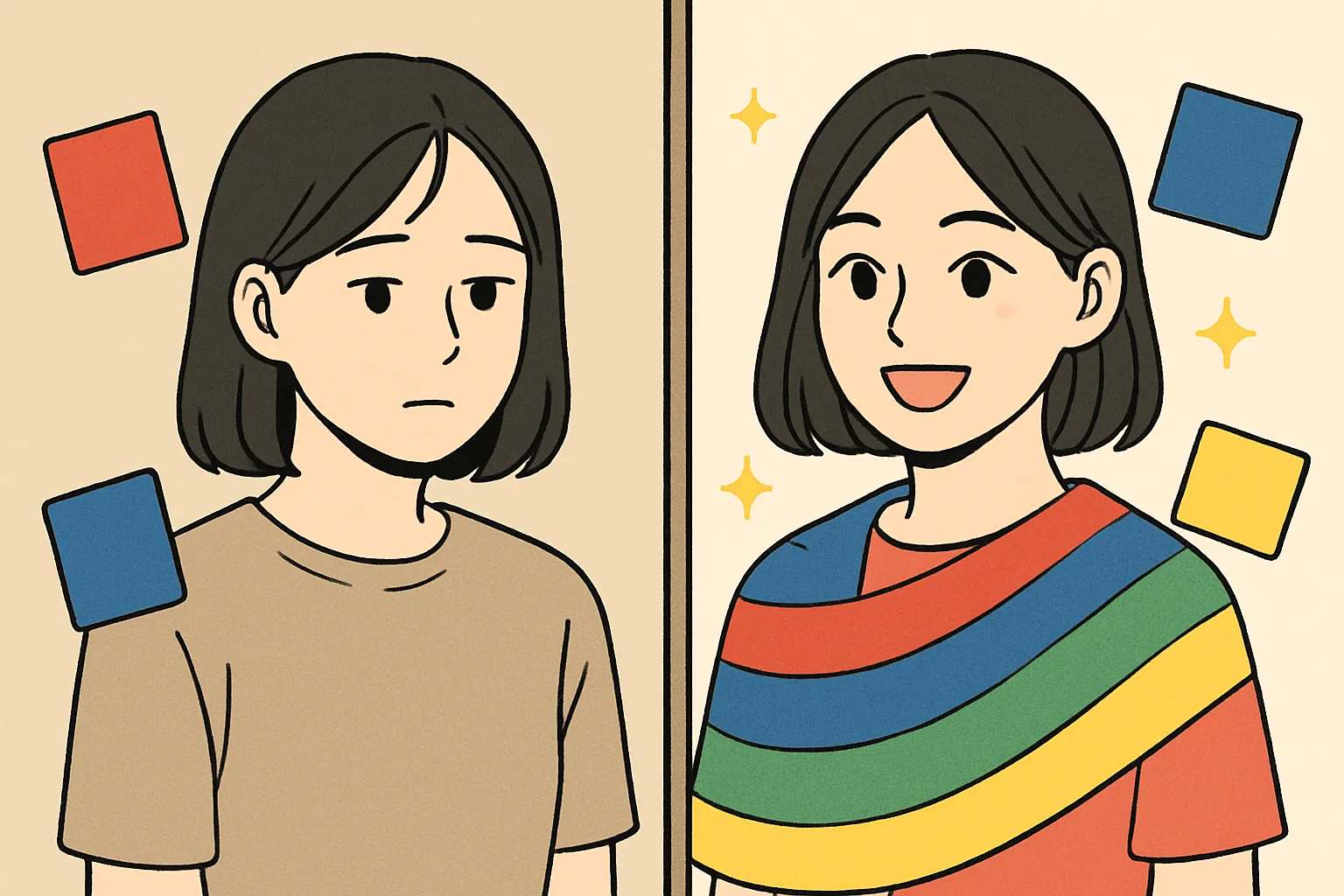More Than ‘Where From?’: Talking with TCKs in Korea
Hello! This is Maeil Hangul, here to upgrade your Korean skills!
Have you ever met someone who grew up in multiple countries? They’re often called Third Culture Kids (TCKs), and their experiences are incredibly unique. Today, we’re going to learn how to have deeper, more empathetic conversations about their experiences in Korean.
Lately in Korea, conversations around multiculturalism are booming, partly thanks to the influence of global K-pop idols like SEVENTEEN’s Vernon or TOMORROW X TOGETHER’s Huening Kai, who have openly shared their TCK journeys. Understanding how to talk about this topic sensitively will not only make you a more thoughtful speaker but also connect you more deeply with the diverse people you meet in Korea!
Let’s dive in!
Core Expressions You Need to Know
Here are some essential phrases to help you navigate these conversations with nuance and care.
1. 정체성에 혼란을 느끼다 (jeong-che-seong-e hon-ran-eul neu-kki-da)
- English Meaning: To feel confused about one’s identity.
- Detailed Explanation: This is a profound and sincere way to describe the inner conflict that can come from living between cultures. ‘정체성’ (jeong-che-seong) means ‘identity,’ and ‘혼란’ (hon-ran) means ‘confusion.’ Using this phrase shows that you understand the complexity of the issue beyond a surface level. It’s suitable for serious, heartfelt conversations.
2. -에 소속감을 느끼다 (e so-sok-gam-eul neu-kki-da)
- English Meaning: To feel a sense of belonging to [place/group].
- Detailed Explanation: ‘소속감’ (so-sok-gam) is a crucial word, meaning ‘a sense of belonging’ or ‘group identity.’ You can attach it to a place, a team, or a community using the particle ‘에’. For example, “한국에 소속감을 느껴요” (I feel a sense of belonging to Korea). For TCKs, finding a place where they truly feel this can be a lifelong journey.
3. 어느 쪽에도 속하지 못하는 느낌 (eo-neu jjok-e-do sok-ha-ji mot-ha-neun neu-kkim)
- English Meaning: The feeling of not belonging to either side.
- Detailed Explanation: This phrase perfectly captures the “in-between” feeling. Let’s break it down: ‘어느 쪽에도’ (to either side), ‘속하지 못하는’ (not being able to belong), ‘느낌’ (feeling). It’s a very descriptive and empathetic way to acknowledge the feeling of being a cultural floater.
4. 다문화적인 배경 (da-mun-hwa-jeok-in bae-gyeong)
- English Meaning: Multicultural background.
- Detailed Explanation: This is a respectful and common term. ‘다문화’ (da-mun-hwa) means ‘multicultural,’ and ‘배경’ (bae-gyeong) means ‘background.’ Describing someone as having a “다문화적인 배경” is a positive and inclusive way to refer to their upbringing.
Example Dialogue
Let’s see how these expressions work in a real conversation between two colleagues, Sora and Alex.
- 소라 (Sora): 알렉스 씨는 여러 나라에서 성장하셔서 시야가 정말 넓은 것 같아요.
- Alex, since you grew up in many countries, you seem to have a very broad perspective.
- 알렉스 (Alex): 좋게 봐주셔서 감사해요. 하지만 어릴 때는 가끔 정체성에 혼란을 느끼곤 했어요.
- Thanks for seeing it that way. But when I was younger, I sometimes used to feel confused about my identity.
- 소라 (Sora): 아, 그렇군요. 혹시 어느 쪽에도 속하지 못하는 느낌 때문에 힘드셨나요?
- Oh, I see. Was it difficult because of that feeling of not belonging to either side?
- 알렉스 (Alex): 네, 맞아요. 완전한 한국인도, 그렇다고 완전한 미국인도 아니라는 생각에 소속감을 느끼기가 어려웠죠. 제 다문화적인 배경을 이해하는 친구를 만나는 게 중요했어요.
- Yes, exactly. It was hard to feel a sense of belonging because I felt I wasn’t fully Korean, nor fully American. It was important for me to meet friends who understood my multicultural background.
- 소라 (Sora): 그렇군요. 그런 깊은 고민이 있으셨는지 몰랐어요. 이야기해 줘서 고마워요.
- I see. I didn’t realize you had such deep concerns. Thank you for sharing your story.
Culture Tip & Trend Deep Dive
Beyond “Where are you from?”
In Korea, a common icebreaker is “어느 나라 사람이에요?” (What country are you from?). While usually well-intentioned, this question can be stressful for TCKs as the answer is often not simple.
Pro-Tip: To show genuine interest and cultural sensitivity, try these alternative questions instead:
- “어디서 자라셨어요?” (Where did you grow up?) – This focuses on their life experience rather than their passport.
- “알렉스 씨에게 ‘고향’은 어떤 의미예요?” (What does ‘hometown’ mean to you, Alex?) – This acknowledges that ‘hometown’ can be a complex concept and invites a personal story.
Using these phrases shows you recognize and respect their unique ‘다문화적인 배경’ and are ready for a more meaningful conversation than just a simple label. This approach is becoming more common among younger Koreans who are increasingly exposed to diverse backgrounds through media and real-life interactions.
Let’s Wrap It Up & Practice!
Great job today! We learned four key expressions to have thoughtful conversations with TCKs: 정체성에 혼란을 느끼다, -에 소속감을 느끼다, 어느 쪽에도 속하지 못하는 느낌, and 다문화적인 배경.
Now, it’s your turn to practice!
- Fill in the blank: A friend tells you, “I was born in Korea but grew up in France, so sometimes I feel like a stranger in both places.” How would you empathize using one of today’s phrases?
- “아, (____________________)이 들겠네요.”
- Make a sentence: Think about your own identity. Do you feel a strong sense of belonging to your city? Try making a sentence using ‘-에 소속감을 느끼다’.
Don’t be shy! Share your answers in the comments below using the expressions we learned today. We’d love to see what you come up with






